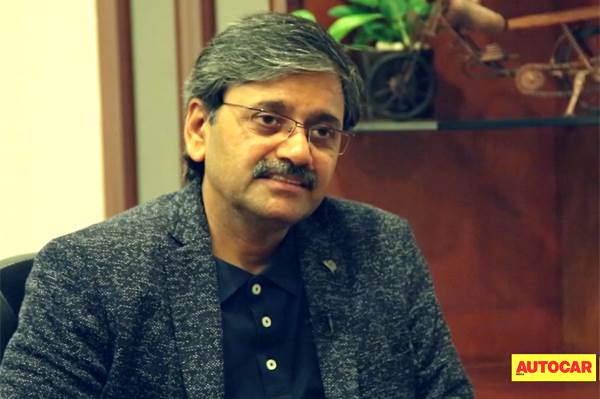The government advancing BS VI emission standards implementation by three years to 2020 poses a big challenge to diesel vehicles, says C. V. Raman, executive director, R&D, Maruti Suzuki. The higher costs of leapfrogging to a greener emission standard could weigh on demand for diesel vehicles whose popularity has eroded considerably of late. India is in the process of implementing BS IV in the current year and will skip BS V for BS VI in the next three years.
“The cost is definitely going to go up. How this is going to pan out is yet to be seen. I think the challenge for Indian manufacturers would be how they optimise the cost and the engineering so that they can give a better value proposition to the customer. Europe is an example where penetration of diesel is almost 45-50 percent,” Raman told Autocar India.
Moreover, making diesel cars compliant would be more of a challenge from an engineering point of view as well, according to Raman. As a result, the cost impact on diesel vehicles would be nearly five or six times of what it will have on the petrol technology.
“Diesel cars would be more challenging (to engineer). This is because, in a petrol engine, the air-fuel mixture has to be kept at a particular ratio, so we're able to control the emissions well. And for meeting the BS VI norms, we may need to change the catalyst and some of the engine hardware, but the complexity is lesser,” he said.
While BS V requires vehicles in India to be fitted with a diesel particulate filter (DPF), BS-VI involves the optimisation of selective catalytic reduction (SCR) technology.
“Diesel is a different ballgame, where we need to actually upgrade from a BS IV engine, first to a BS V and then to a BS VI. And progressively we need to do that because in BS V we are trying to tackle the particulate matter and in BS VI we're trying to reduce the NOx. The key challenge is that while the technology is available in Europe and everywhere else, it needs to be made relevant for India because the vehicle average speeds are much lower than Europe,” Raman said.
Diesel cars in India have been under attack ever since the Supreme Court banned above 2,000cc diesel for over eight months starting December 2015. The ban was later lifted but subject to a levy of 1 percent green cess on the ex-showroom price. Moreover, in the Budget 2016-17, the government announced a cess of 2.5 percent on diesel cars under four metres and with engine capacity of less than 1,500cc, as against one percent for petrol and CNG cars of similar length.
Not surprising then, that the demand for diesel vehicles has tapered off. Data revealed by Society of Indian automobile manufacturers showed that the share of diesel among the total sales of passenger vehicles in November 2016 declined to 38 percent from 44 percent in the previous year, while that of petrol increased to 62 percent from 56 percent.
However, while the rise in price could deteriorate the demand further, it would be too soon to write off diesel vehicles since they are important for meeting the CAFE (corporate average fuel efficiency) norms for auto manufacturers which kick in later this year and diesel will continue to be a preferred choice for SUVs.
The CAFÉ norms calculate fuel efficiency on the basis of the total number of vehicles manufactured per year as opposed to model wise fuel efficiency. The new norms, which are set to be implemented from April 2017, stipulate that carbon dioxide emissions by vehicles should be at 129.8 gm per km by the fiscal year 2021-22 and to 113 gm from the fiscal year 2022-23 onwards. Carbon dioxide emissions in 2010-11 were at 142gm per km, according to reports.
“I think diesel vehicles are here to stay. They help in improving the corporate average or the fuel efficiency norms for every manufacturer. Moreover, some of the vehicles such as SUVs would definitely work better on diesel compared to petrol because that's how the vehicles are engineered,” Raman said.
Interestingly enough, Raman suggested the changing price value equation of the diesel vehicles vis a vis petrol vehicles would put emphasis on hybrid technology. “Mild hybrid is important for going forward because we look at it as a two-step thing. One is the introduction of technology, where people are going to get a better performance out of it and secondly, it's also a way of educating the customer on how to use a mild hybrid because this is start-stop,” Raman said.
In fact, Maruti is also considering a wider adoption of hybrid technology for its cars in the future and Raman hinted that it could eventually lead to a
full hybrid vehicle. Thanks to the encouraging response it has received for vehicles equipped with its 'Smart Hybrid Vehicle by Suzuki' or SHVS technology, it is evaluating the introduction the system for more cars in the country



Comments
Member Login
Personal Details
No comments yet. Be the first to comment.